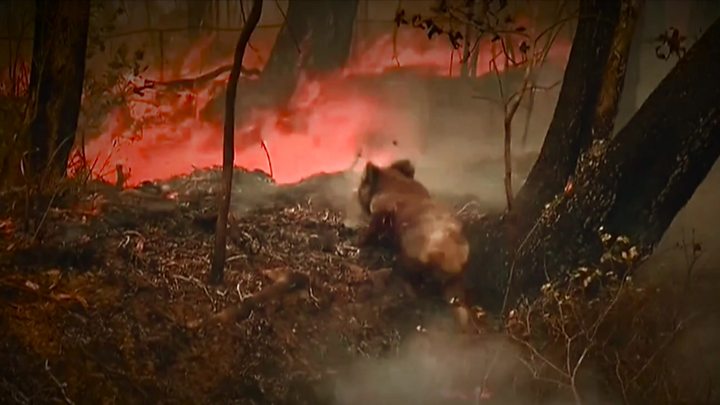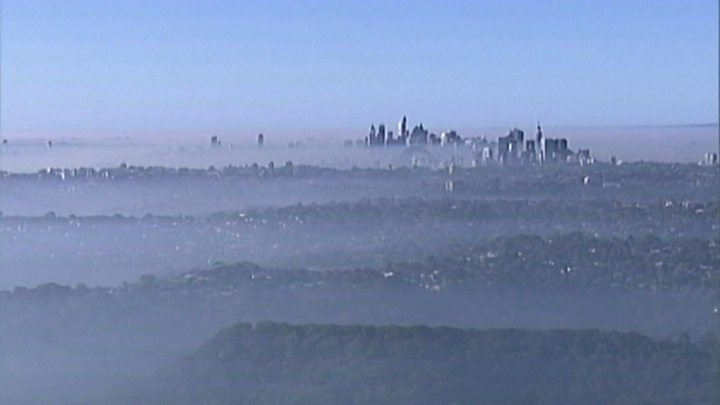
Koalas in Australia's bushfires
Heat and winds are threatening to widen Australia's bushfire crisis, with two states warned to expect their worst conditions of the season so far.
Soaring temperatures in South Australia prompted "catastrophic" alerts - the highest danger rating - on Wednesday.
Tasmania is also predicted to see its worst conditions yet on Thursday, though its forecast is less extreme.
Six people have died since last month in massive bushfires which are burning elsewhere in the country.
Those blazes - in New South Wales (NSW) and Queensland - have destroyed more than 500 houses and prompted debates on the impacts of drought and climate change.
Australia's largest city, Sydney, was also blanketed by bushfire smoke on Tuesday, causing dozens of calls to paramedics for related health problems.

A thick layer of smoke from nearby fires covered the entire city
Where's the danger?
Fires in South Australia prompted emergency warnings on Wednesday as temperatures neared 45C (113F) in parts of the state. Winds of up to 90km/h (55mph) exacerbated the threat.
Officials switched off electricity to about 10,000 homes and businesses to reduce the risk of new fires breaking out.
"All areas of the state are in danger today, with the potential for fires which do start to be uncontrollable by fire crews," a Country Fire Service spokeswoman told the BBC.
The southern state has endured its driest first nine months of any year on record, said Australia's Bureau of Meteorology. No significant rainfall is forecast for the coming months.
In NSW and Queensland, officials warned that heat from the centre of the country could escalate blazes later in the week.
Tasmania's threat level of "severe" meant that any fire would be difficult to control, said Bruce Byatt, an official quoted by Australian Associated Press.
Large areas of Australia are enduring a prolonged drought, creating tinder-dry conditions.
Climate change influence
Scientists and experts say that Australia's fire season has grown longer and more intense due to climate change.
Last year the nation experienced its warmest summer on record. Official figures also show 2018 and 2017 were Australia's third and fourth-hottest years on record respectively.
As the fires rage on, Australia's conservative government has been criticised over its efforts to address climate change. Last year, a UN report said the nation was falling short of its Paris climate agreement commitments to cut CO2 emissions. BBC